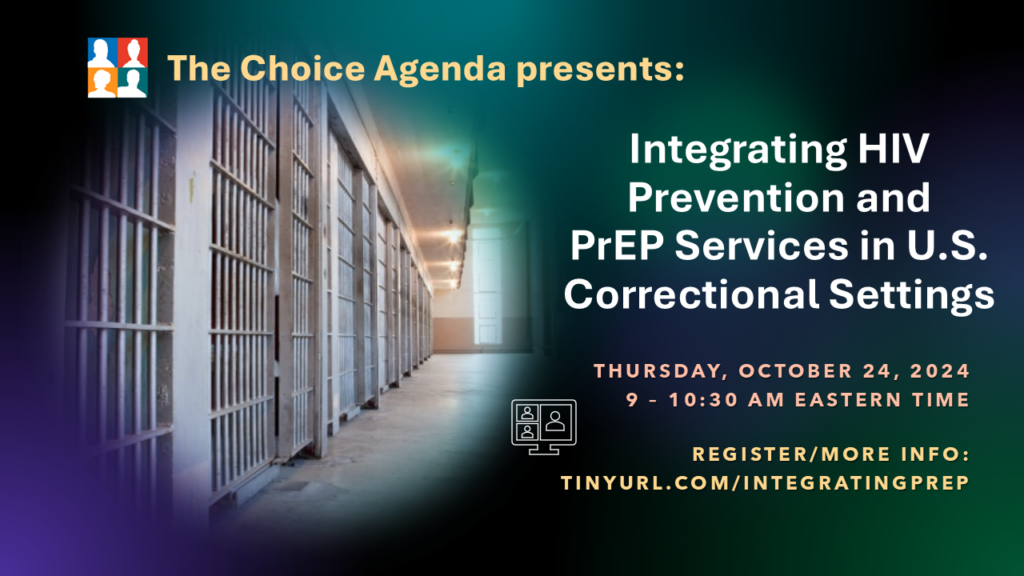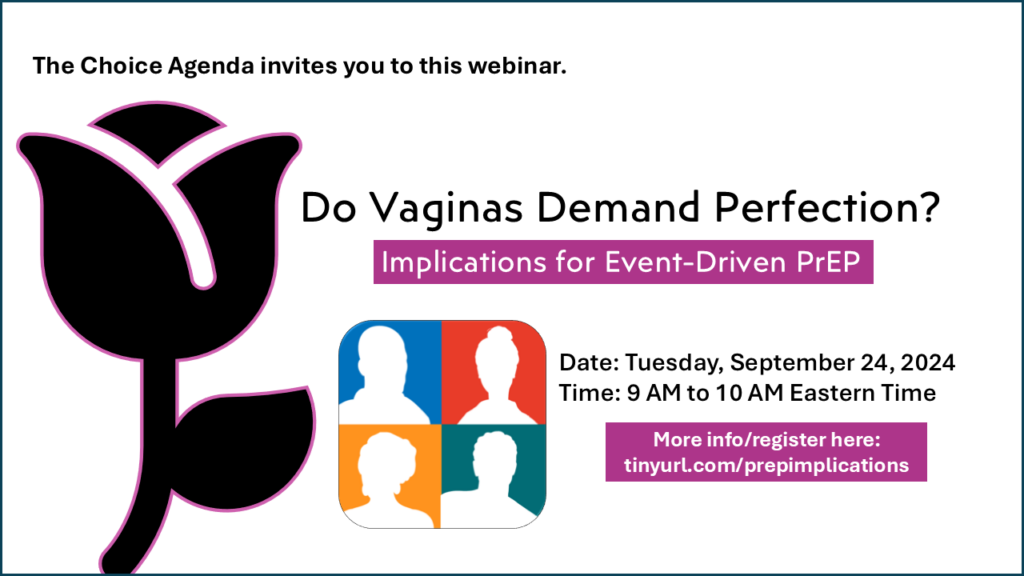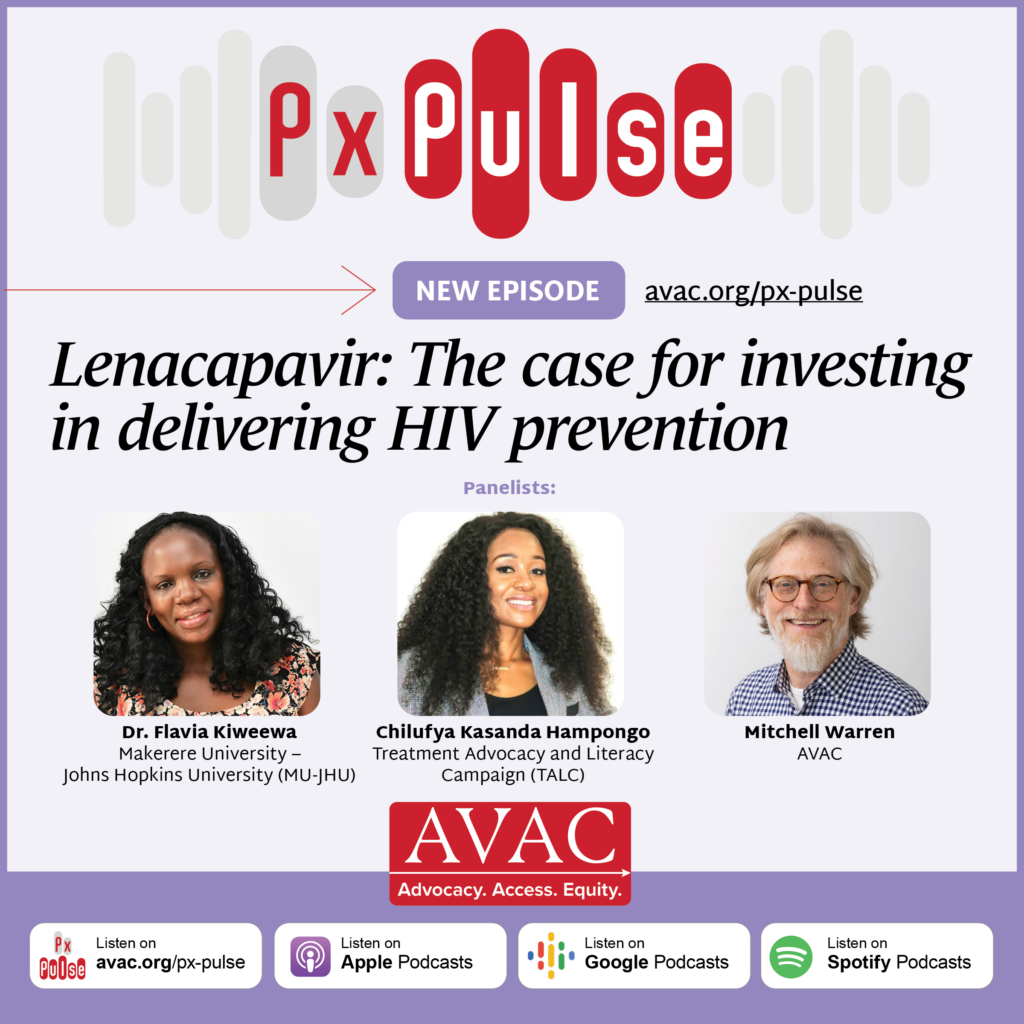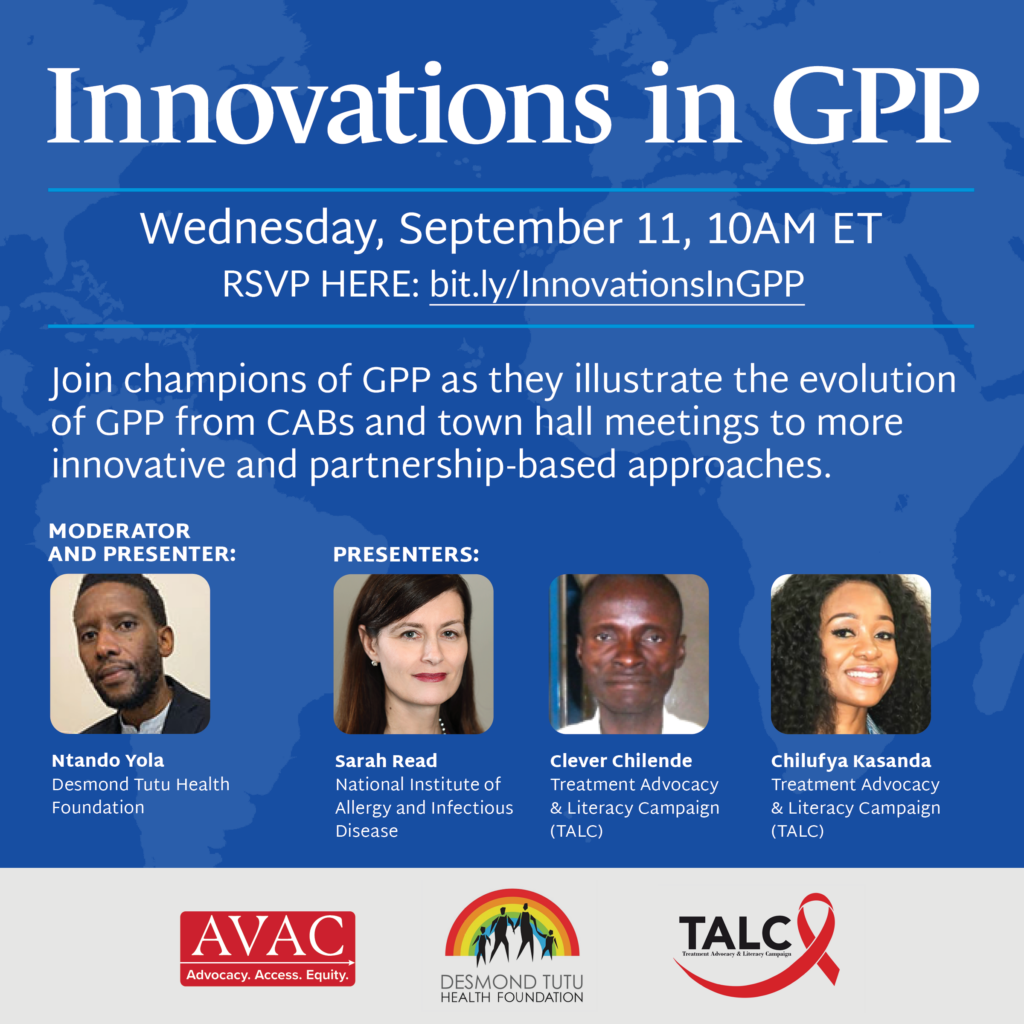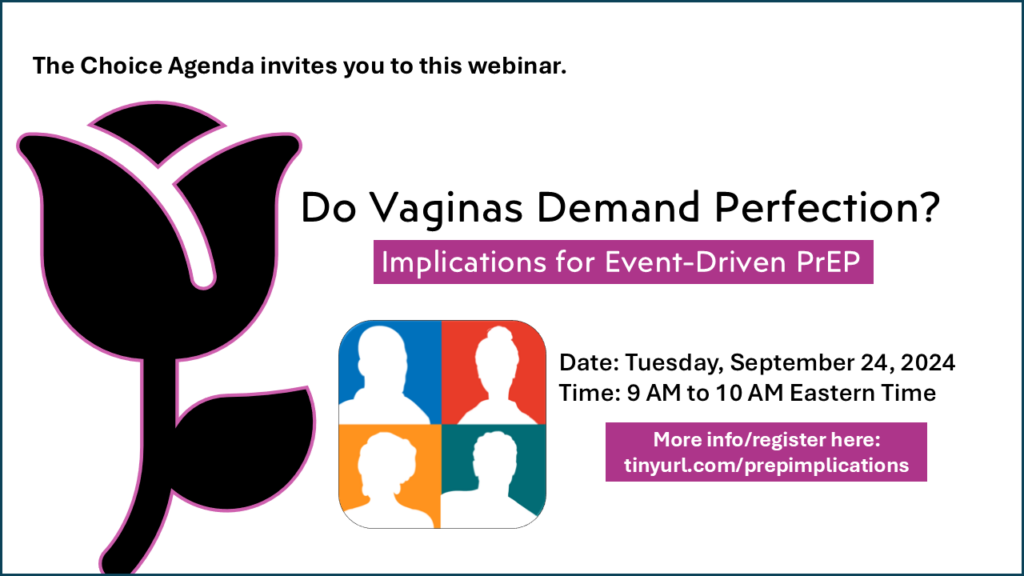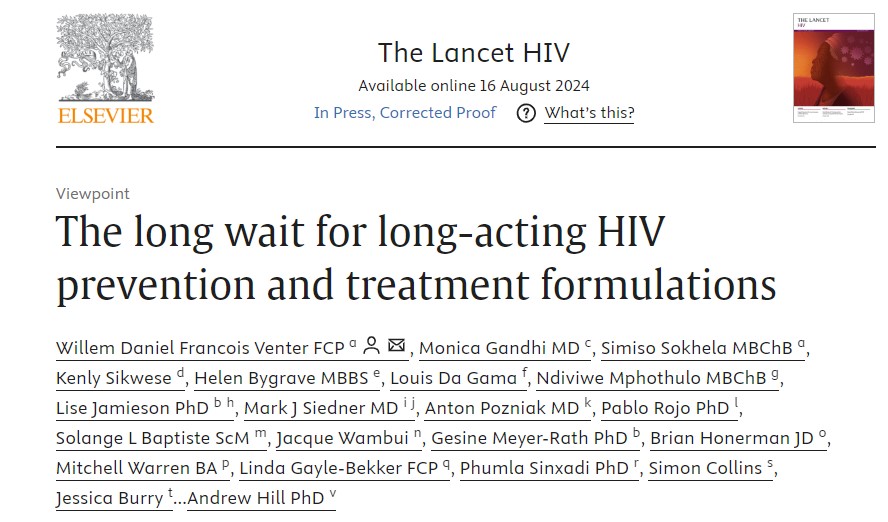AVAC’s round-up of resources, updates and insights this week includes a new roadmap for sexual and reproductive health (SRH) and HIV integration, resources to support an equitable Pandemic Accord, innovations in Good Participatory Practices (GPP) and more!
The power of choice in contraception, sexual health and HIV prevention this World Contraception Day
Roadmap: Sexual and Reproductive Health (SRH) Integration Roadmap
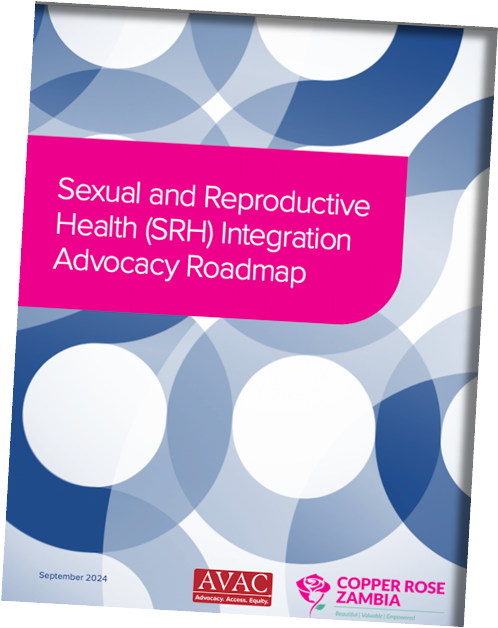
Copper Rose Zambia, as a part of CASPR and AVAC launched a new resource addressing the critical need for integrated SRH and HIV services. This roadmap provides key steps for success, focusing on collaboration, strategic mapping and targeted advocacy.
Advocate’s Guide: Advocates’ Guide to Multipurpose Prevention Technologies (MPTs)
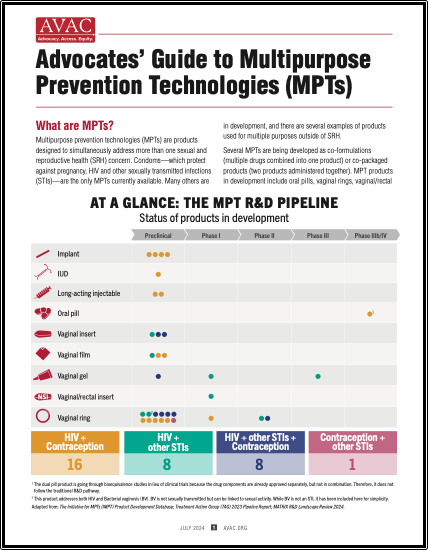
MPTs are products designed to simultaneously address more than one sexual and reproductive health concern. This advocates’ guide shows the pipeline of products in development, discusses why MPTs are needed, investment, and what advocates can do to push for MPT development and introduction.
What will it take for an equitable Pandemic Accord?
Call to Action: Pandemic Accord Priorities from the Coalition of Advocates for Global Health and Pandemic Preparedness
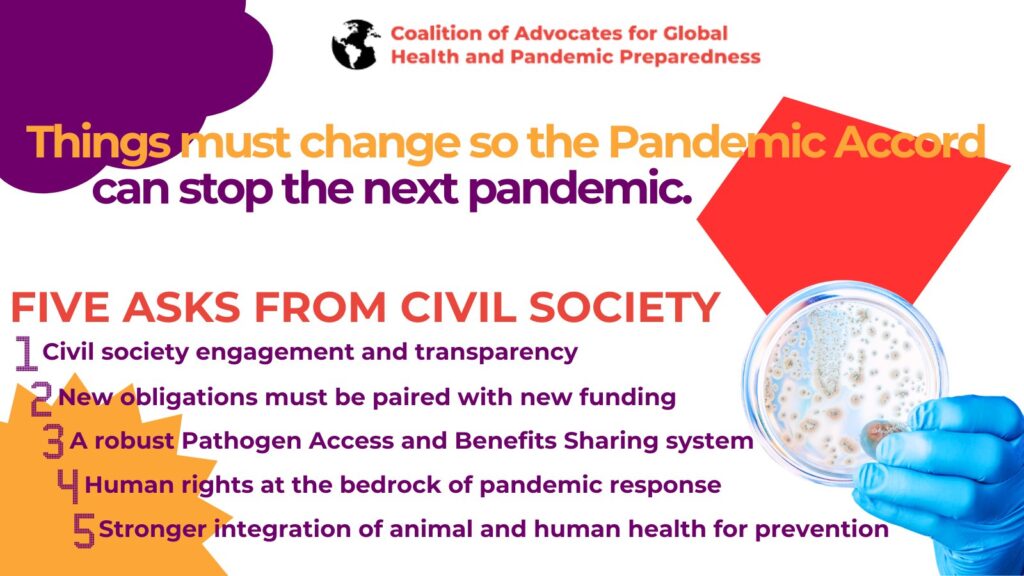
A group of organizations advocating for an integrated and holistic approach to preparedness that emphasizes equity, inclusion, and synergies of multiple global health programs in advancing preparedness, shares five priorities in Pandemic Accord negotiations.
UNGA Side Event: Restrategizing Civil Society Engagement for Pandemic and Global Governance
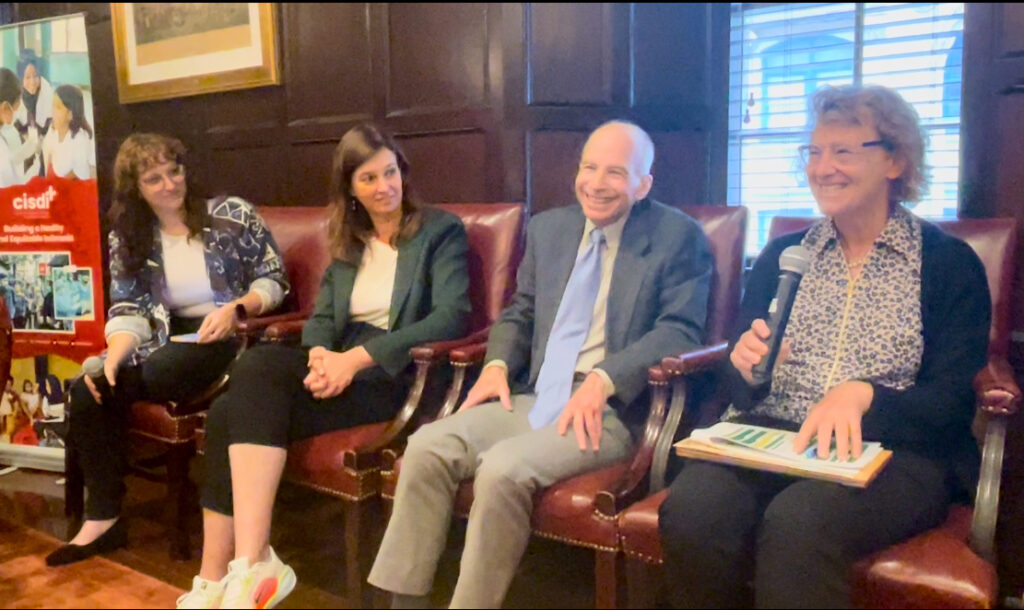
AVAC’s Sam Rick moderated CISDI’s event alongside Nina Schwalbe, Lawrence Gostin, Eloise Todd and others, reminding the audience that for pandemic prevention, preparedness and response (PPPR) to succeed, lessons from the HIV response must be integrated into the architecture being built for PPPR.
Good Participatory Practices in action
Call for Applications: Now Accepting Applications for the 2024 Good Participatory Practice Online Course
The 2024 Good Participatory Practice Online Course is now accepting applications for 30 spots! This course offering will run 14 October – 20 December 2024. The application deadline is 9 October.
Recording: Innovations in GPP
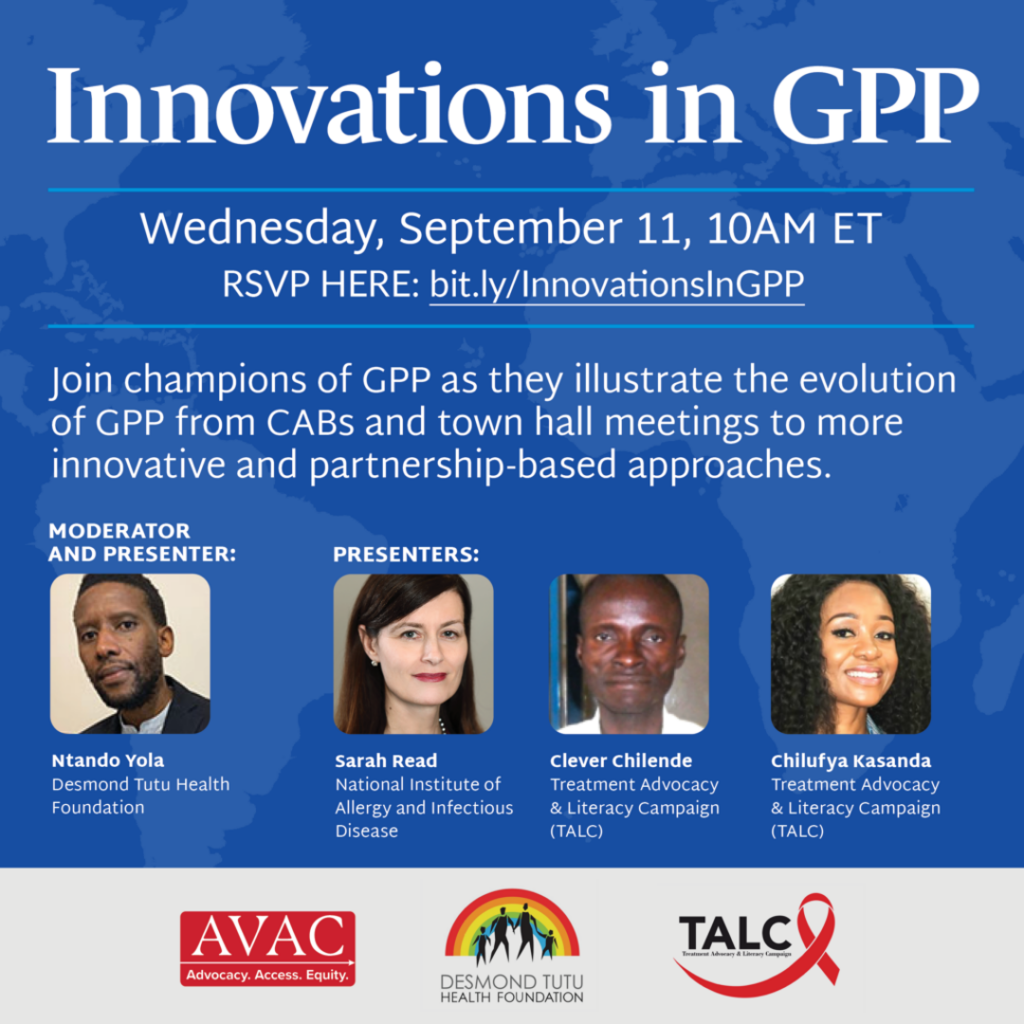
Recording / Clever Chilende Slides / Sarah Read Slides / Ntando Yola Slides
